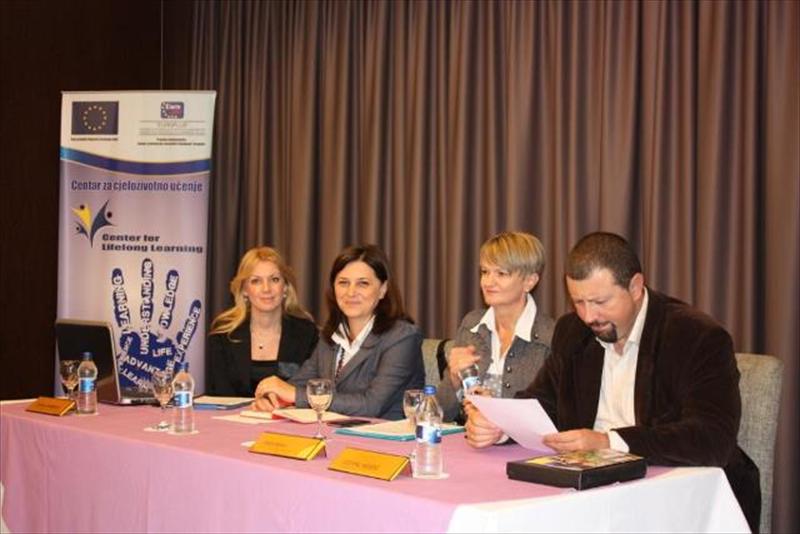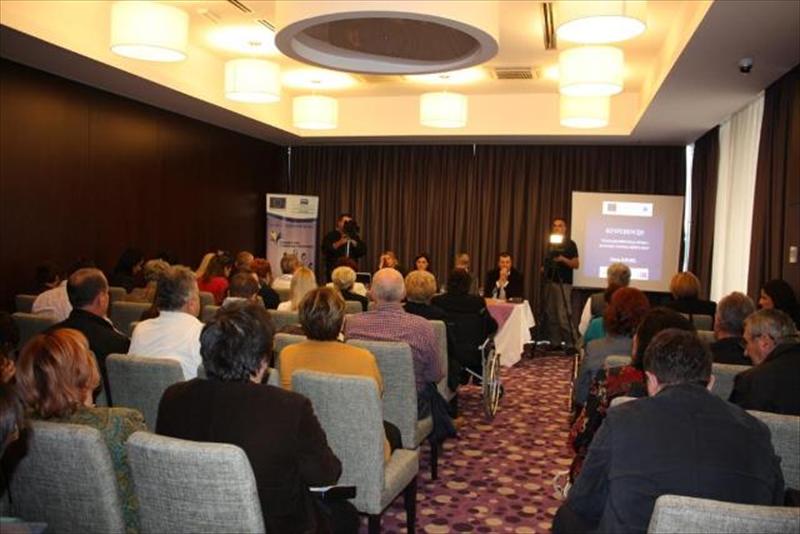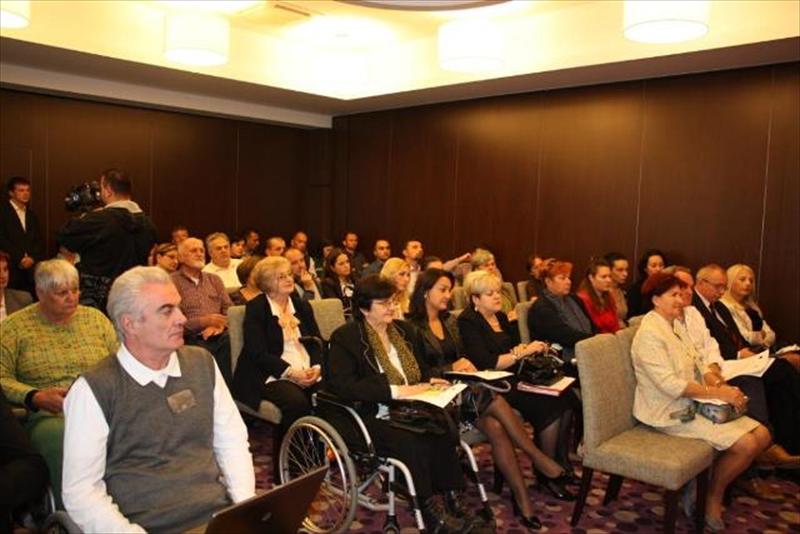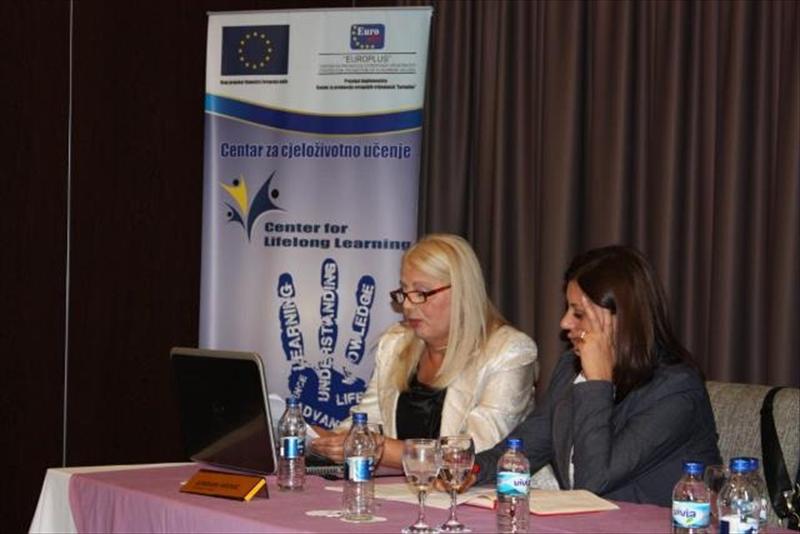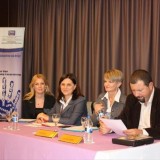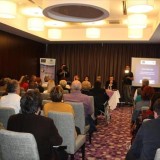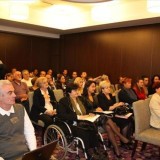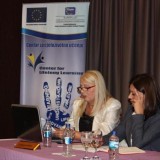Low awareness of the importance of lifelong learning, the imbalance between labour supply and labour market needs, and the fact that over 60% of the unemployed persons in BiH belong to the 25 – 49 age group, are the facts that prompted the project “Centre for Lifelong Learning”. This was pointed out at the conference “The importance of lifelong learning in the context of the labour market needs”.
The conference was one of the activities of the Centre for Lifelong Learning project funded by the European Union and implemented by the Center for the Promotion of European values EUROPLUS, in partnership with the Business – technical High School Doboj, NGO Buducnost from Modrica, BiosPLUS from Derventa and the Association of Informatics in Bosnia and Herzegovina. The conference was also attended by a representative of the Delegation of EU to BiH, representatives of partner organizations and associates on the project, local authorities Doboj, Derventa and Modrica, as well as representatives of the business community.
The survey from April to June on a sample of 311 companies from Doboj, Derventa and Modriča, showed that employers in more than 30% of cases have the need for staff training. Among other things, the study found that in the past year in this area there were 184 vacant positions that could not be filled due to lack of adequate manpower.
The aim of this research was to obtain information on the needs for training of workers, adapting educational content and the creation of educational programmes of the Centre for Lifelong Learning, which will soon be established in Doboj, and whose role will be to enable individuals to acquire knowledge and skills necessary for employment and/or self-employment.
Dijana Djurdjevic, team leader of the project „Centre for Lifelong Learning“, said that Centre for lifelong learning will be registered in the second phase of the project, and that third phase of project will be networking with similar centres in the EU.
This center will be 48th Center established in Republika Srpska, said Mira Bera, Director of the Institute of Adult Education of Republika Srpska. The centers operate under the programmes of the Institute of Adult Education, currently 24 approved training programs and two programs for specialization. As one of the positive examples of programs that implement adult education centers, Bera mentioned implementation of the program of work digger in the mine, for which the 30 people completed the training. In this way, workers in the lead and zinc mine Srebrenica retain existing jobs or getting a new job.
Džemal Hodžić, the representative of the Delegation of EU to BiH and program manager for the labour and employment sector and civil society development, said that the project “Centre for Lifelong Learning” is one of the 16 projects from support the civil society grant schemes, and the total amount of the grant scheme 3,5 million euro. He emphasized the importance of cross-sectoral activities in this field.
“The key to the development of local communities lies in the partnerships and cooperation between key stakeholders from different sectors: education, employers, local authorities and the labour and employment sector”, said Hodzic. As a positive example he cited municipality of Gorazde, where intersectoral cooperation resulted in employment of hundreds of workers at the enterprise “Asa prevent”.
Mansura Beganovic from the Association of Informatics in Bosnia and Herzegovina presented the status of computer literacy, while Drago Tadic from NGO BiosPLUS Derventa and Gordana Vidovic from NGO Buducnost Modrica talked about the situation of people with disabilities and women victims of violence.
Vidovic said that of the 1200 women who used their safe house in previous 13 years, only 4% of them were employed, and that the free trainings provided by the project Centre for Lifelong Learning will be a good opportunity for these categories. In addition to people with disabilities and women victims of violence, the opportunities for training in the Centre will also be open to unemployed persons, older than 45 and registered at the Employment Bureau in Doboj. Five-month trainings will begin in the spring, while the Centre will continue its work upon their completion.

